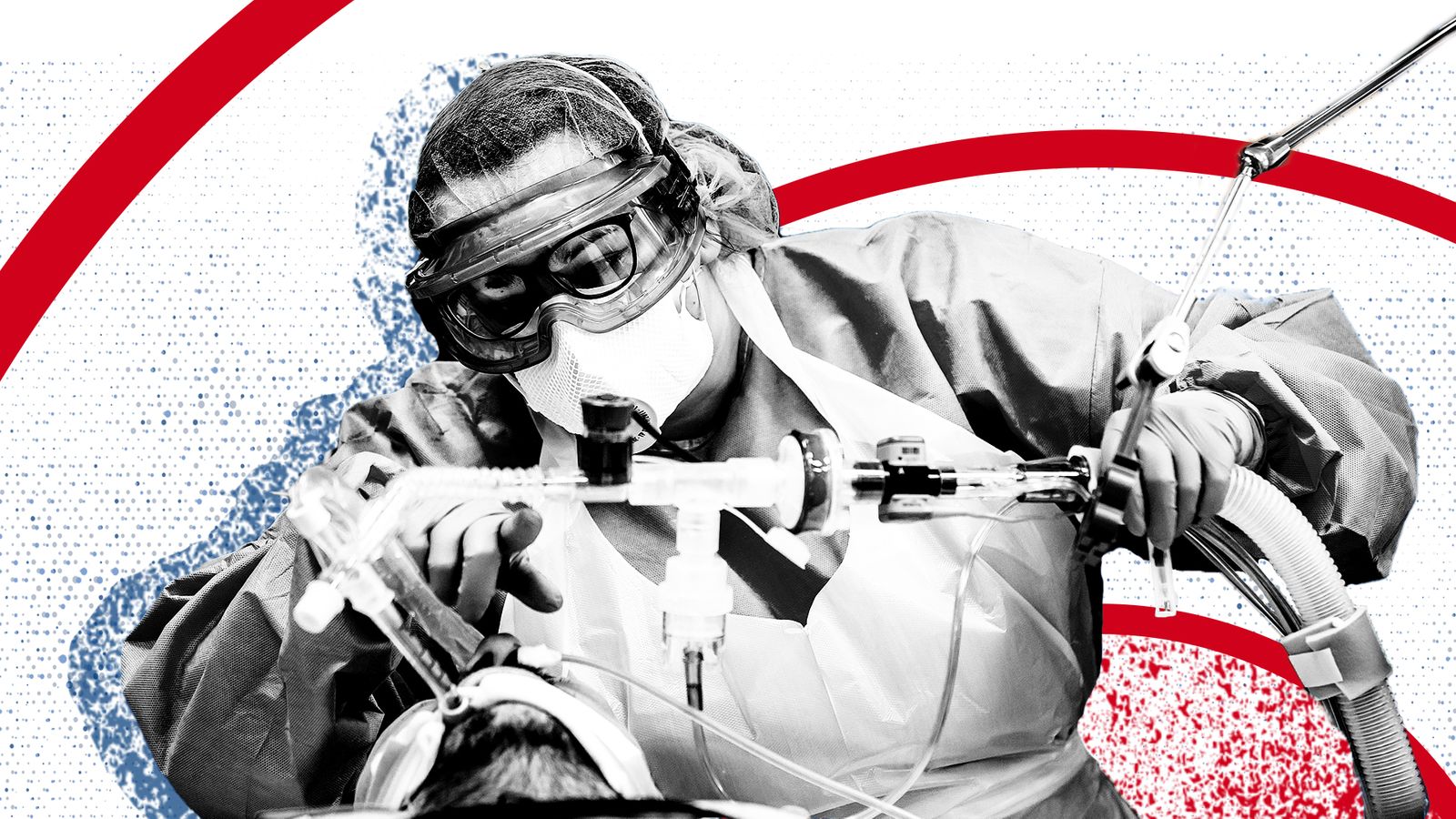People from an ethnically diverse background currently make up the highest proportion of coronavirus patients in intensive care in the UK since the pandemic began.
People living in the most deprived areas of the country have also seen a larger increase in intensive care unit (ICU) admissions in recent months.
And the average age of all ICU patients has dropped to just below 50-years-old for the first time since March 2020, according to the latest data from the Intensive Care National Audit and Research Centre.
The overall number of people in ICU with COVID has dropped in the past few months, but the proportion of people who are from an ethnically diverse background or live in a deprived area has risen.
People from ethnically diverse backgrounds made up 50% of all ICU coronavirus patients in England, Wales and Northern Ireland in May – double the number of last November and higher than the previous peak in August, when overall numbers of ICU patients had also dropped.
A similar trend can be seen for people from the most deprived backgrounds.
Dr Charlotte Summers, a reader in intensive care medicine at the University of Cambridge, said the numbers for both deprived and ethnically diverse patients are linked.
“It’s hard to pull apart the two groups as you’re more likely to be in a more deprived area if you come from an ethnic minority background,” she said.
“There’s more likely to be multi-generational housing in certain ethnicities, and also deprivation.
“There are higher levels of socio-economic deprivation aligned with areas with a high ethnic minority population.”
The average age for people in ICU with COVID has also dropped rapidly since January, as the vaccine programme kicked off, decreasing by 11 years compared with March 2020 to 48.8 years old.
Dr Raghib Ali, honorary consultant physician in acute medicine at Oxford University Hospitals NHS Trust, said it makes sense that more younger ICU patients are from ethnically diverse groups.
“Fifty percent of ethnic minorities are aged less than 50, whereas only 25% of white people are,” Dr Ali, also a government adviser on COVID and ethnicity, said.
“It’s not to do with being less likely to take up the vaccine, it’s age impact.
“Ethnic minorities also have higher rates of certain co-morbidities – for South Asians it’s diabetes and black people it’s obesity. These are all risk factors for ending up in ICU, and also apply to those from deprived areas.”
Data show people from white backgrounds are more likely to have the vaccine in England than other ethnicities, especially from black communities, where almost a quarter of over-80s are yet to have their first dose.
Dr Summers said: “I suspect the signals around deprivation and other demographics are also related to vaccination uptake. Some areas with high ethnic minority populations have very low vaccine take-up.
“There can be a lot of pressure from within communities and there’s no point in blaming people who don’t want to take it, there are a huge number of reasons why people don’t engage with health care.
“We need to encourage vaccination and engage with those communities from within. It’s not just ethnic minorities who are vaccine-hesitant, so understanding and working with people is the way forward.”






















